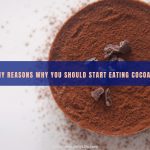Almost all of us have been down the midnight-fridge-raid road. What can possibly be so satisfying about munching on cheesy French fries or digging into a bowl of triple sundae ice cream in the dead of the night? Science says that cravings have less to do with hunger and more to do with our psychological state.
Right from the early stages of evolution, our brain has taught us that high-calorie foods are more rewarding. And it was until a few centuries back when we would go hungry for the better part of the day, struggled to hunt a decent-sized meal and foraged endlessly to feed young ones. Calorie-dense foods kept us feeling full for longer and suited our lifestyles. The same brain mechanism helps us associate fatty and sugary food with pleasure and enjoyment.
Diet lacking in protein and fiber also makes us hungry and we end up binging on junk food to feel full and satiated instantly.
Junk food contains trans fats that are bad for your heart. They also increase bad cholesterol levels in your body. Midnight snacking cannot be directly linked to weight gain, but it does contribute to it. Sugary snacks also increase insulin resistance, increasing your vulnerability to type-2 diabetes. According to researchers at the Semel Institute at the David Geffen School of Medicine at UCLA, midnight noshing can affect the hippocampus’s functioning in the brain and mar memory formation.
The following infographic by Practo helps you understand more about the effects of midnight snacking on vital organs.

![[Infographic] Exploring Sleep Debt: Strategies for a Restful Night's Sleep Exploring Sleep Debt: Strategies for a Restful Night's Sleep](https://www.safeandhealthylife.com/wp-content/uploads/2024/01/Sleep-Debt-150x150.webp)


